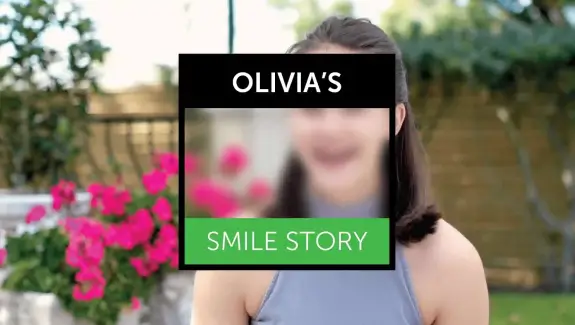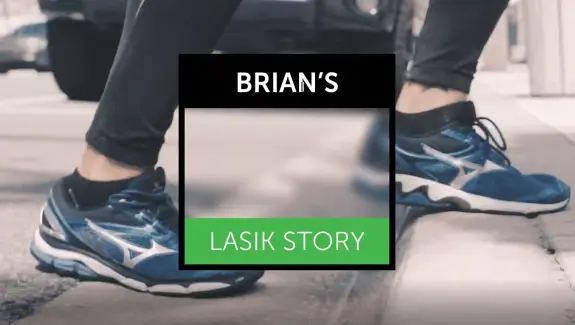Welcome to the Filutowski Eye Institute
The Filutowski Eye Institute is a recognized leader in vision correction surgery, proudly serving Central Florida for almost 35 years. We specialize in cataract and refractive surgery, including LASIK, RLE, SMILE, ICL, and PRK. Your vision is our top priority, and we are committed to providing the highest level of care using state-of-the-art technology.
With over 150,000 laser procedures and 75,000 lens implant procedures performed, the Filutowski Eye Institute is renowned for its expertise and pioneering advancements in vision correction. For more than three decades, the practice has been at the forefront of innovation, continually adopting the latest technologies to deliver the best possible outcomes for patients. The institute has also hosted and trained numerous surgeons and associates from around the world, sharing its knowledge and setting new standards in cataract and refractive surgery.
Dr. Konrad Filutowski founded the Filutowski Eye Institute in 1990 as a single-practice operation with just one employee. Today, the institute has expanded into a multi-physician, multi-location organization with over 130 associates. Joined by his sons, Dr. Oliver Filutowski and Sebastian Filutowski, practice administrator, the family continues to uphold the legacy of excellence in vision correction and world-class patient care.
At the Filutowski Eye Institute, we pride ourselves on offering personalized care that sets us apart from the competition. We understand that your vision needs are unique, which is why we have a comprehensive range of procedures available. You will consult directly with our doctors to determine the best solution for your vision needs, whether it is cataract surgery, LASIK, RLE, or other advanced options.
We are honored that you are considering us for your vision correction needs, and we look forward to helping you achieve the best vision possible.
how it works
SEE what you’ve been missing
Schedule a Consultation
Whether you are interested in LASIK, think you may have cataracts, or have another issue with your vision, we will strive to find a solution for you. We work with each patient to develop a personalized surgical plan based on lifestyle, vision goals, and eye health. Our goal is to make this experience simple and hassle-free while providing the highest level of care. You can expect a warm welcome, open communication, and clear and transparent pricing.
Find Your Solution
Determining the best procedure for your vision is a straightforward, personalized process. It begins with your surgical counselor, where you will discuss your vision goals and review key information. Next, our highly trained Ophthalmic technicians will perform a series of preliminary tests to assess eye health and vision. Following these tests, the doctor will conduct a comprehensive medical examination, provide a precise diagnosis, and recommend a tailored treatment plan. Finally, your surgical counselor will review the diagnosis and guide you through the options, helping you select the procedure that best fits your unique needs and lifestyle.
Gain Vision Freedom
You can't put a price on the freedom and peace of mind that comes with stress-free, clear vision. Schedule a consultation now and start your journey to vision freedom today!
Our Solutions
Whether you are in your 20s and looking to be free from glasses and contacts, in your 40s and want to get out of reading glasses, or in your later years and dealing with cataracts, we want to find a solution for you.
LASIK and Laser Vision Correction
Laser vision correction procedures are some of the most popular elective surgeries in the United States. The three types of laser vision correction are SMILE, LASIK, and PRK. With Laser Vision Correction, we offer patients a chance to live life without a dependency on glasses and contacts by using a laser to reshape the cornea.
Refractive Lens Exchange and Vision Correction Surgery
Refractive Lens Exchange and Implantable Contact Lenses are other types of Vision Correction Surgeries. They can be a good solution for patients who are noticing they need reading glasses or have very high prescriptions. Like Laser Vision Correction, the goal of RLE and ICL is to help patients live a life without glasses and contacts and the hassles associated with them.
Standard Cataract Surgery
The vast majority of people develop cataracts as they age. A cataract is a clouding of the natural lens in your eye that leads to blurry and distorted vision, loss of vivid colors, and difficulty seeing at night. The only way to relieve cataract symptoms is to surgically remove the cataract and replace it with an intraocular lens implant. This common procedure is known as cataract surgery.
Cataract Surgery with the Vision Freedom Option
As an upgrade to your standard cataract surgery, we offer the Vision Freedom Option (VFO). With VFO for your cataract surgery, you will receive specialized testing before your procedure, the ability to choose a premium lens implant, and a LASIK touch-up if needed after your procedure. The goal of the Vision Freedom Option is to give you your best possible vision following your cataract surgery.
Why choose the Filutowski Eye Institute?
Experience and Expertise:
Dr. Konrad Filutowski founded the Filutowski Eye Institute almost 35 years ago. While functioning as the business and medical director, Dr. Konrad Filutowski became highly experienced and has been nationally recognized as an elite Ophthalmologist. During this time he built a multi-physician practice that has performed more than 225,000 procedures while serving the population of central Florida. Today our hand-picked team of surgeons and staff members, trained by Dr. Konrad Filutowski, are highly skilled and knowledgeable ensuring that our patients receive world-class care.
Advanced Technology:
At the Filutowski Eye Institute we utilize state-of-the-art technology and stay up to date with the latest advancements in surgical techniques to provide you, our patients, with the best possible outcomes. Advanced diagnostic equipment is used to thoroughly evaluate your eye health and determine the most appropriate treatment plan.
Personalized Approach:
Our team of professionals will take a personalized approach with you and will perform a comprehensive evaluation to understand your unique needs and goals. We then develop a customized treatment plan to get you to your best possible vision.
Commitment to world class patient care:
Your care is a top priority of ours at the Filutowski Eye Institute. We maintain strict protocols and follow industry best practices to provide you with the best care possible. Our team prioritizes patient education and provides detailed pre- and post-operative instructions to ensure a smooth and safe experience.
Positive Reputation and Patient Satisfaction:
For more than 34 years we have built a strong reputation around delivering excellent results and satisfying our patients. Many patients have shared their positive experiences and successful outcomes following their vision correction procedure online. These reviews and testimonials from satisfied patients can provide reassurance and confidence for those considering vision correction surgery at the Filutowski Eye Institute.
We will make this experience as simple and hassle-free as possible for you while providing a world-class level of care. At the Filutowski Eye Institute you can expect a warm welcome, open and honest communication, and clear and transparent pricing.
We look forward to meeting you soon.
Don't just take our word for it!
Our patients are our biggest advocates. Listen to what they have to say about how the Filutowski Eye Institute changed their lives, and let them convince you to take your first steps towards vision freedom.

Patients of [Dr. Filutowski’s] that I know who have had procedures done at the Filutowski Eye Institute just rave about how they were treated… so there has never been any doubt in my mind about where I would go when I finally decided to have a procedure done… I really wish I had had this sooner… The day after SMILE I was able to do everything without any help. It’s just really incredible.
Olivia V.
Actor and Creator

After LASIK, I feel fabulous. It’s given me back confidence and it’s freed me. The freedom to do whatever I need to do in life because I no longer have something I have to remember. I just loved the whole experience.
Brian G.
Hair stylist, owner of salon 402

When my husband saw how well I was doing and how content and happy I was with my procedure, he decided “I have had enough with all these glasses laying around. So, I am going to go and have the exact same surgery with Dr. Filutowski.”
Dora F.
Cataract patient

Before Refractive Lens Exchange, I had terrible vision… I just needed a change. I chose the Multifocal Lens.. I really felt this was the best lens for me. …[It] allows you to see distance, intermediate, and close up… It’s the best decision I ever made… I wish I had known about this procedure sooner.
Tabitha K.
RLE Patient & nurse

Everybody’s professionalism has erased any doubts and fears during the surgical process. They explained everything that was going on, and went out of their way to make sure that I was comfortable and happy. If you are having problems with your vision or you are wearing glasses, you need to see the man himself – Dr. Filutowski – because he is the BEST!
Manny M.
VFO Patient

I had LASIK done with Dr. Filutowski, and the very next day I was seeing 2020! For years and years, I have been hearing about Dr. Filutowski and I did my own research about the practice and how experienced they are. They took good care of me and made me feel comfortable, the procedure was quick and painless. I am enjoying the fact that I don’t have to wear glasses!
Domino
Sunny 105.9 Radio Host

The day after SMILE I was able to do everything without any help. It’s just really incredible.
Olivia V.
Actor and Creator

After LASIK, I feel fabulous. It’s given me back confidence and it’s freed me.
Brian G.
Hair stylist, owner of salon 402

My biggest regret is that I did not do this sooner… Now I can see.
Dora F.
Cataract patient

It’s the best decision I ever made… I wish I had known about this procedure sooner.
Tabitha K.
RLE Patient & nurse

If you are having problems with your vision or you are wearing glasses, you need to see the man himself – Dr. Filutowski – because he is the BEST!
Manny M.
VFO Patient

I had LASIK done with Dr. Filutowski, and the very next day I was seeing 2020!
Domino
Sunny 105.9 Radio Host
FAQ
For LASIK and Vision Correction Procedures: you can schedule a virtual consultation or an in-person Vision Correction consultation easily online. If you’d like to talk to a counselor first, give us a call (407.333.5111) or send us a message.
For Cataract Evaluations: schedule a virtual consultation or fill out our online form to let us know you’re interested. If you’d like to talk to a counselor first, give us a call (407.333.5111) or send us a message.
For other appointments: Give us a call (407.333.5111) or send us a message.
This depends on your specific situation, but we can generally schedule your first eye procedure within a few weeks to a month.
Most patient who elect to have standard cataract surgery will, at the very least, need reading glasses following their procedure. However, we offer our patients a solution called our Vision Freedom Option. The Vision Freedom Option is designed to reduce or eliminate your need for glasses and contacts and give you the best possible visual outcome after your procedure.
We have three locations – Lake Mary, Daytona Beach, and Orlando. To see a map or get directions, visit our contact page.
We pride ourselves on our clear and transparent pricing. With no discounts, limited time offers, or haggling, you can be confident you are paying a good price for a quality experience.
See our LASIK and Vision Correction Pricing.






